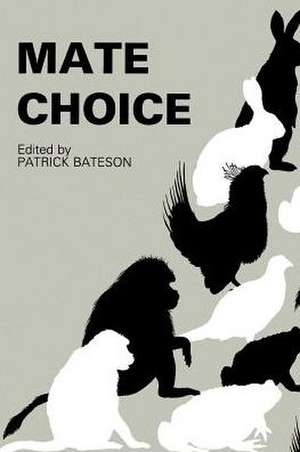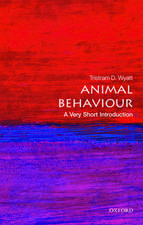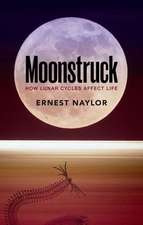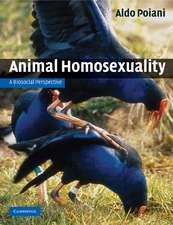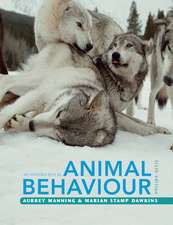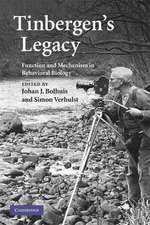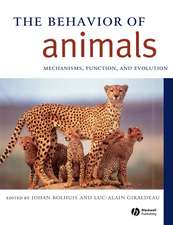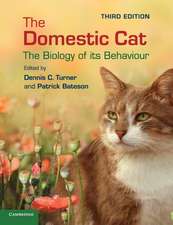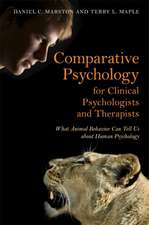Mate Choice
Editat de Patrick Batesonen Limba Engleză Paperback – 27 apr 1983
Preț: 614.32 lei
Preț vechi: 690.25 lei
-11% Nou
Puncte Express: 921
Preț estimativ în valută:
117.55€ • 123.06$ • 97.26£
117.55€ • 123.06$ • 97.26£
Carte tipărită la comandă
Livrare economică 05-19 aprilie
Preluare comenzi: 021 569.72.76
Specificații
ISBN-13: 9780521272070
ISBN-10: 0521272076
Pagini: 480
Ilustrații: 1
Dimensiuni: 152 x 228 x 30 mm
Greutate: 0.77 kg
Editura: Cambridge University Press
Colecția Cambridge University Press
Locul publicării:Cambridge, United Kingdom
ISBN-10: 0521272076
Pagini: 480
Ilustrații: 1
Dimensiuni: 152 x 228 x 30 mm
Greutate: 0.77 kg
Editura: Cambridge University Press
Colecția Cambridge University Press
Locul publicării:Cambridge, United Kingdom
Cuprins
List of contributors; Preface Patrick Bateson; Part I. Introduction: 1. The study of mate choice T. R. Halliday; 2. Monogamy: an ambiguous concept Wolfgang Wickler and Uta Seibt; Part II. Characteristics of Sexual Selection: 3. Sexual selection by female choice Peter O'Donald; 4. Sexual selection: the interface of theory and empiricism Stevan J. Arnold; 5. Leks and mate choice Jack W. Bradbury and Robert M. Gibson; Part III. Sex Differences in Chosiness: 6. Mate quality and mating decisions G. A. Parker; 7. Mate choice in role-reversed species Marion Petrie; 8. Male-mate competition and mate choice in anuran amphibians Anthony Arak; 9. Mate choice in the European Rabbit Diana J. Bell; Part IV. Non-Random Mating: 10. Non-random mating and offspring fitness Linda Partridge; 11. Optimal outbreeding Patrick Bateson; 12. Assortative mating, mate choice and reproductive fitness in Snow Geese F. Cooke and J. C. Davies; 13. Mate choice in the Mallard Diane M. Williams; 14. Early experience and sexual preferences in rodents Bruno D'udine and Enrico Alleva; Part V. Compatibility of Mates: 15. Re-mating in birds Ian Rowley; 16. Mate choice in the Kittiwake Gull J. C. Coulson and C. S. Thomas; 17. Mate choice in humans as an interpersonal process Steve Duck and Dorothy Miell; Part VI. Hormonal Mechanisms: 18. Hormonal mechanisms of mate choice in birds J. B. Hutchison and R. E. Hutchison; 19. Endocrine determinants and constraints on sexual behaviour in monkeys Eric B. Keverne; Part VII. Decision Rules: 20. Life history tactics and alternative strategies of reproduction R. I. M. Dunbar; 21. Tactics of mate choice James F. Wittenberger; Index.
Recenzii
"...there is no volume that provides a better collection of ideas on mate choice. If you are interested in mate choice, you must read this book." Science
"...succeeds admirably in providing a comprehensive review of our current knowledge of mate choice...it also offers many novel and unique hypotheses and methods for testing them as well as more traditional views; it should serve the active researcher usefully. In short, I enjoyed it and recommend it..." William M. Shields, Auk
"...an exciting addition to the field and will be a point of departure for a great deal of future research." Evolution
"...succeeds admirably in providing a comprehensive review of our current knowledge of mate choice...it also offers many novel and unique hypotheses and methods for testing them as well as more traditional views; it should serve the active researcher usefully. In short, I enjoyed it and recommend it..." William M. Shields, Auk
"...an exciting addition to the field and will be a point of departure for a great deal of future research." Evolution
